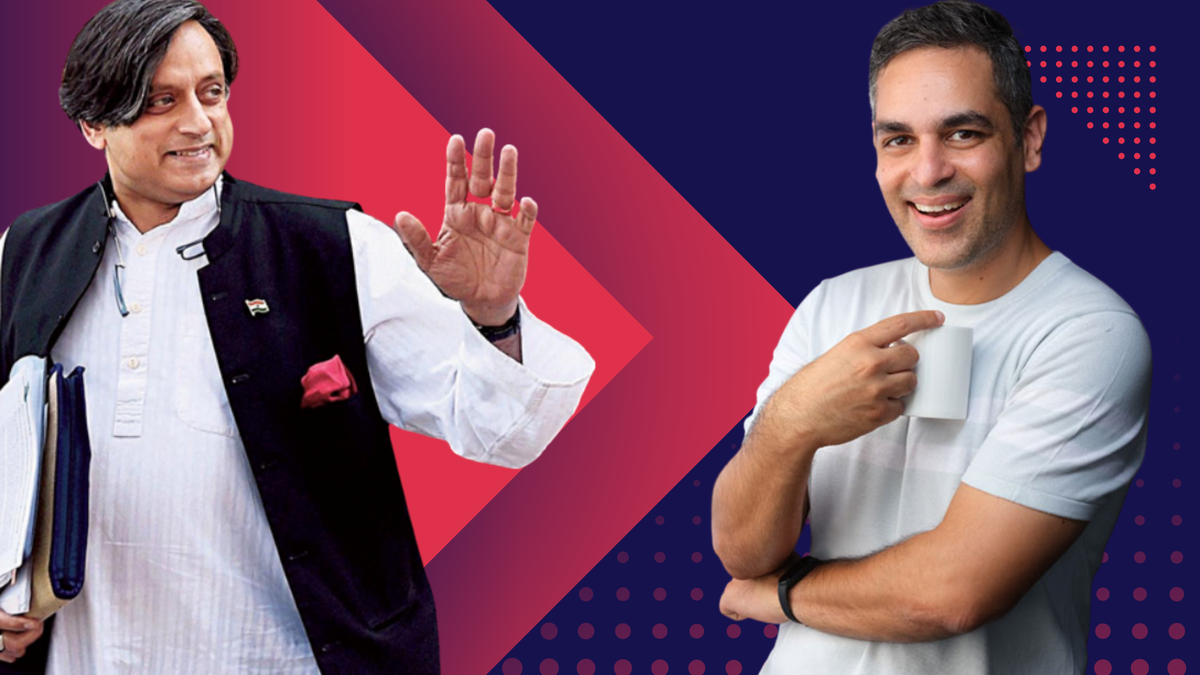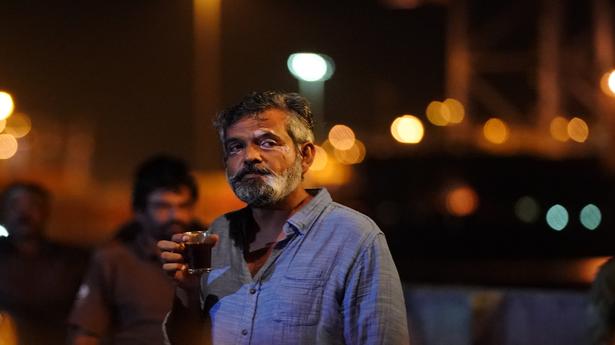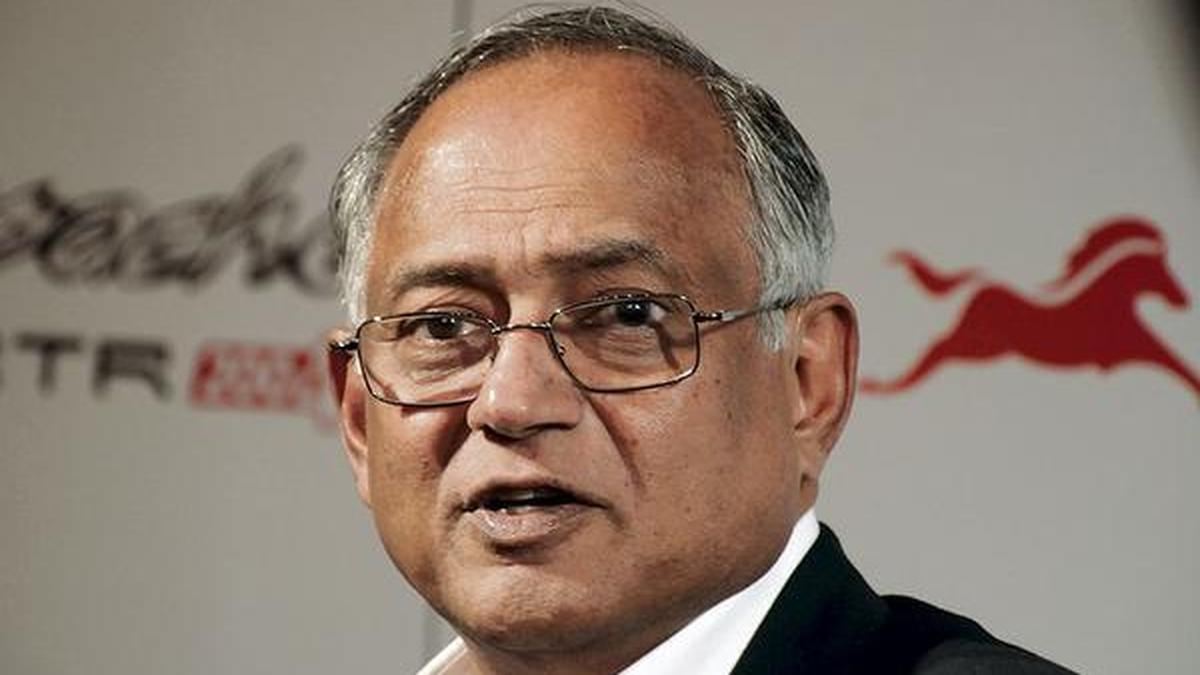When Ankur Warikoo came out with his book Do Epic Shit last December, he posted that it ‘may very well turn out to be the most useless book you will ever buy because nothing in it is something you don’t know’. It went on to be the highest selling Indian debut of 2022 and has since sold over 200k copies. One of India’s most successful internet entrepreneurs — who doesn’t shy away from revealing his laundry list of failures, from failing to get into IIT (twice) to being a PhD dropout — he is also an icon of young India. He has 2.44 million subscribers on YouTube, and his ‘prescriptions’ or short video explainers on everything from books to read to where to invest get millions of views.
Shashi Tharoor, on the other hand, may only have 485k followers on the video sharing platform, but his speeches and discussions are played on loop across the country. The diplomat, politician and writer (his latest book is B.R. Ambedkar: The Man Who Gave Hope to India’s Dispossessed), who is serving as Member of Parliament for Thiruvananthapuram, Kerala, is always mobbed at airports. Two different generations, but for various reasons they are beloved by Gen Z. In this freewheeling conversation, the two try to make sense of young India from the other’s perspective, while also discussing writing, success, and being ‘several people in one life’. Edited and condensed for length and clarity:
Tharoor: It is the first time that I’ve been in conversation with somebody whose book title I’m unable to mention in public. I’m assuming the book is a reflection of what you’ve been saying on YouTube.
Warikoo: You hit it absolutely right on. The book is not so much the reason for what I am, but the culmination of my life. I’ve been an entrepreneur for 13 years now, and I’ve dabbled in the startup ecosystem, seen the tech environment of the country shape up. [There’s] a big shift now, more so in the audacity with which young India looks at itself. I love that. I’m 42, and while I feel like 22, I’m not really 22.
Tharoor: Don’t worry, I’m 66 and I still feel 22. You let the body do the ageing for you, and you keep the mind young.
Warikoo: Absolutely, I couldn’t agree more. I was running a startup that, at the end of 2019, I decided to step down from. And it just so happened that the pandemic struck, the world was in a completely different mood than what it was, and we all had time, including me. And I started creating content around the things that I was passionate about, more so the failures that I had made, which were so many to count that I thought that would be a full-fledged series of its own. And thankfully, people took it up, they resonated with what I had to say because here was someone who they thought had done it in life and been successful at it, and here I was admitting that no, it wasn’t all hunky dory, and there were a lot of slips and misses across the way. In some ways, validating the journey they were also experiencing and that just struck a chord.

Tharoor: Success, I think, does come from qualities that you need to fail to acquire. And you’ve told people to embrace failure and to rise from it. That’s remarkable and I share that view entirely. Your second book, I was struck by the fact that you’ve structured it like a Socratic dialogue — you have a student asking a teacher questions. Why did you choose that format? Because your YouTube videos aren’t like that. How does that affect your relationship with the reader as well?
Warikoo: That’s a great question. Certainly, the inspiration was the Socratic way of indulging, and one of my favourite books in the last two years was Courage to be Disliked [Fumitake Koga and Ichiro Kishimi, 2013], which also had this same philosopher-student dialogue embedded in it. I write actively for those in their 20s, and what is reflective of that generation is that attention spans are abysmally low, for no fault of theirs. They were just born in a world that had an information overload. There is a propensity to just read actively, but what’s needed is breaks, and breaks could be forced upon the reader, or it could be just their own internal dialogue, hopefully, translated into words on paper itself.
So, with the student-teacher conversation, my attempt was, as I’m navigating through the answers that I wish to share with them, they will suddenly come up with their own questions, and can I pre-empt those questions and write it in that itself. So that they almost feel as if I’m reading their mind. Even if I’m successful in that 10%-20%, I think that would have landed far better than them saying, ‘You know what, this is turning into a monologue and I couldn’t care less. I want to go back to my Instagram Reels or my YouTube Shorts, and make it a nice, happy 60-second consumption’.
Tharoor: You’ve got some very important thoughts in both your books about people finding their passion. Like you say, your passion isn’t lying somewhere waiting to be found. You grow it by pursuing things that interest you, and over time, an amalgamation of one of those things becomes your passion. That’s something people have to understand. Whatever that passion may be, how different is that definition from terms like persistence, consistency, discipline and so on?
Warikoo: I was deeply influenced by the concept of ikigai when I came across it for the first time. It is a beautiful, simple concept, a Japanese term that loosely translated in English means ‘the purpose of one’s being’. The four things that intersect to bring about your ikigai are: things that you love doing, things that you’re good at, things that the world needs, and things that you can make money from. And it said that if you were to find something that intersects all of these four, that would be your ikigai. And passion, for a lot of people, just limits itself to things that they love doing and that they’re good at. And they very rarely go forward and say, is that something the world wants?
Ankur Warikoo’s ‘Do Epic Shit’ was the highest selling Indian debut of 2022.
So, for instance, a lot of people could be passionate about singing or writing, but they never really ask themselves, how can I shape this into something the world would want? And can I make it into something that could make me monetary benefit? If you were to do that, then you basically have all the four tenets of what ikigai stands for. So I believe that passion has to be married to these remaining two elements to truly find the centre of your purpose.
Tharoor: So would you say your ikigai lies in helping others find themselves? You certainly enjoy making those videos, writing these books. You’re obviously very good at it, arguably a lot of people believe that. You have a section in your book about how to deal with criticism. And that’s an interesting problem. Certainly, those of us who write books — every time you get a review of your book, you have to deal with criticism. And it’s sometimes not fair, sometimes the reviewer just wants to sound clever and claim you haven’t done something when you’ve done precisely that in the book. You’ve said in the past that you’ve tried to take criticism positively. Can you give an example of the kind of criticism you’ve had to take positively, and how it affected you or how you dealt with it?
Warikoo: So many of them, and on a daily basis. When you become a public figure of sorts, and I’m sure you recognise this on multiple levels than I ever can, there will always be people with a different point of view.
And you have two reactions. One is, of course, to get into some sort of a fist fight, even if not physical, but verbal in a sad sense. Or two, I would focus on the message, and try and distract or dissociate myself from the tonality of the message. And the belief in there is, I believe no one gets up in the morning wanting to destroy my life. I could be wrong, but that’s a big assumption on my part, and if that’s the case, then for them to be propelled to say something against me, to say something that could hurtfully be mean-spirited would in some way be something they want to share or communicate, but maybe [they aren’t] using the right words or the right tonality. And then it becomes my job, or at least I bear the responsibility of dissociating and abstracting myself from that tonality and just focusing on the message. The minute I do that, I have a choice. The choice is to accept that message or to reject it. And I become then the custodian of that decision.
Tharoor: Well, if you get into politics, you’ll find there are people who wake up in the morning trying to destroy your life. Since you’re taking criticism so fairly, let me try one at you. You’ve said we have one life but don’t need to be one person, which suggests that people need to have several outlets, several interests. But how does that fit in with the idea of finding your passion? Isn’t there a risk you’re actually encouraging somebody being a dilettante, [of] somebody scattering themselves everywhere?
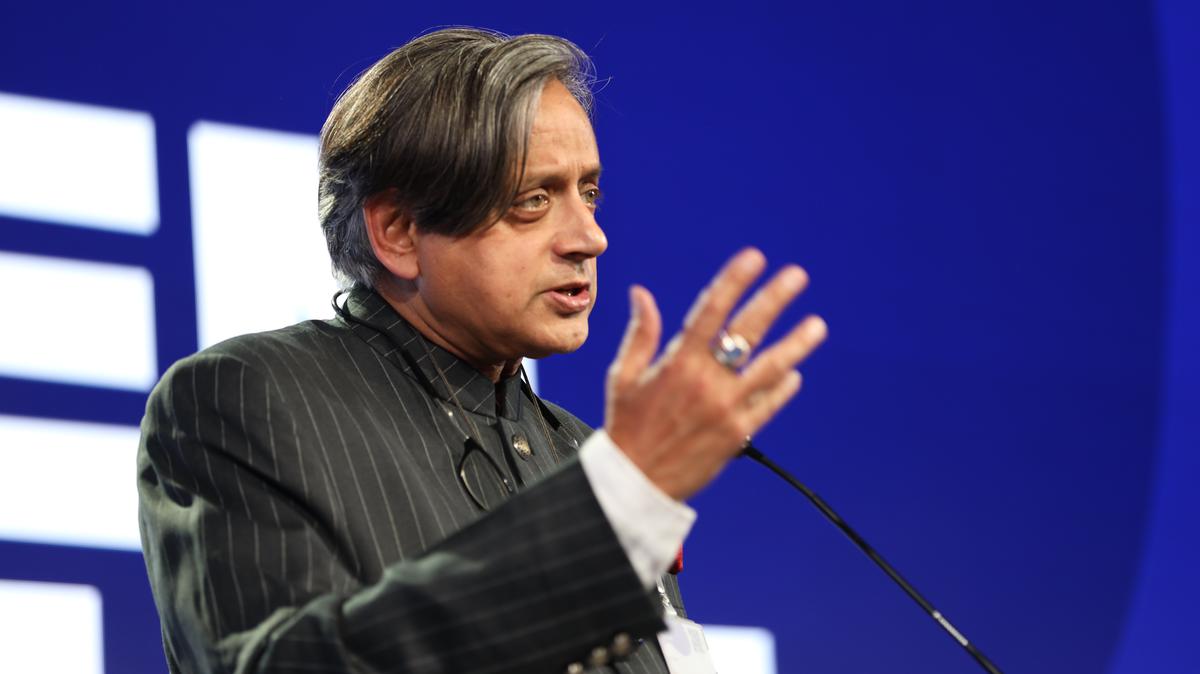
“If you get into politics, you’ll find there are people who wake up in the morning trying to destroy your life,” says Shashi Tharoor.
Warikoo: It’s a fair point. But passion is very rarely a profession. It is the way that you conduct yourself. For example, my passion is to be a teacher. The mode in which I teach or the audience might change. It could be through a YouTube video today, or a startup tomorrow. It could be through a book the day after. And that, frankly, doesn’t matter. As long as I’m centred on the fact that my ikigai is teaching, it’s something that I’m good at, it’’ something that the world certainly needs, and I found a way of making money through that. But a lot of people think of passion as ‘Oh, I need to be a digital marketer. I need to be a sales professional. I need to be a CEO.’ It is more often than not a designation and that’s very limiting. It’s a parochial view of what passion could be. And I’d love to have this answer from you.
Tharoor: It is a challenge to answer that. I once said to an interviewer, I’m already a former minister. One day, I’ll be a former MP, but I certainly hope I’ll never be a former writer. That suggests, my ultimate legacy will lie in the words I leave behind and the ideas they embody. But yes, I’m spending an awful lot of time doing stuff that doesn’t necessarily involve a lot of thinking and ideas, a lot of politics, especially retail politics. I am a Lok Sabha MP. So, I’m accountable to the constituents and what they often want is jobs, transfers, sifarish of various sorts, calls to employers, calls to banks they have borrowed money from, you know, personal favours. And they expect that the MP who represents them has the clout to deliver those favours for them. Whereas in many western democracies, most of the things that I’m asked by my constituents to do would not pass the ethical smell test. I mean, MPs would not be supposed to be doing those things in those countries. In India, you’re judged by that. If you don’t do those things, you don’t get re-elected. So, it’s perhaps 10% of my political life that involves coming up with new ideas, initiatives, making a contribution to policy by debates in Parliament.
I do think that in terms of my life, I’ve always tried to make a difference. But the ways in which I’ve tried — through my work at the UN, my writing, my public speeches and now my efforts as an elected representative — all of that represents being many people, as it were. Your motto, you have one line that you don’t need to be one person. Well, in that sense, I’m not just one person.
Warikoo: I am curious, when do you make time for writing?
Tharoor: Whenever I can. It has forced me to become more of a nightbird than I used to be. Because it’s only when the pressures in life stop, the phone calls stop, the visits stop, the demands stop around 10 o’clock, 11 o’clock at night that I have the quietness and the space to sit and write. Sometimes if the day has been too tiring, then I’ll collapse at that point and instead wake up early and write. So it depends on the day. I just can’t have a pattern; I’ve done a lot of writing till 2 a.m. and 3 a.m., and sometimes even past that, but I’ve also done some early morning writing and at various [other] stages.
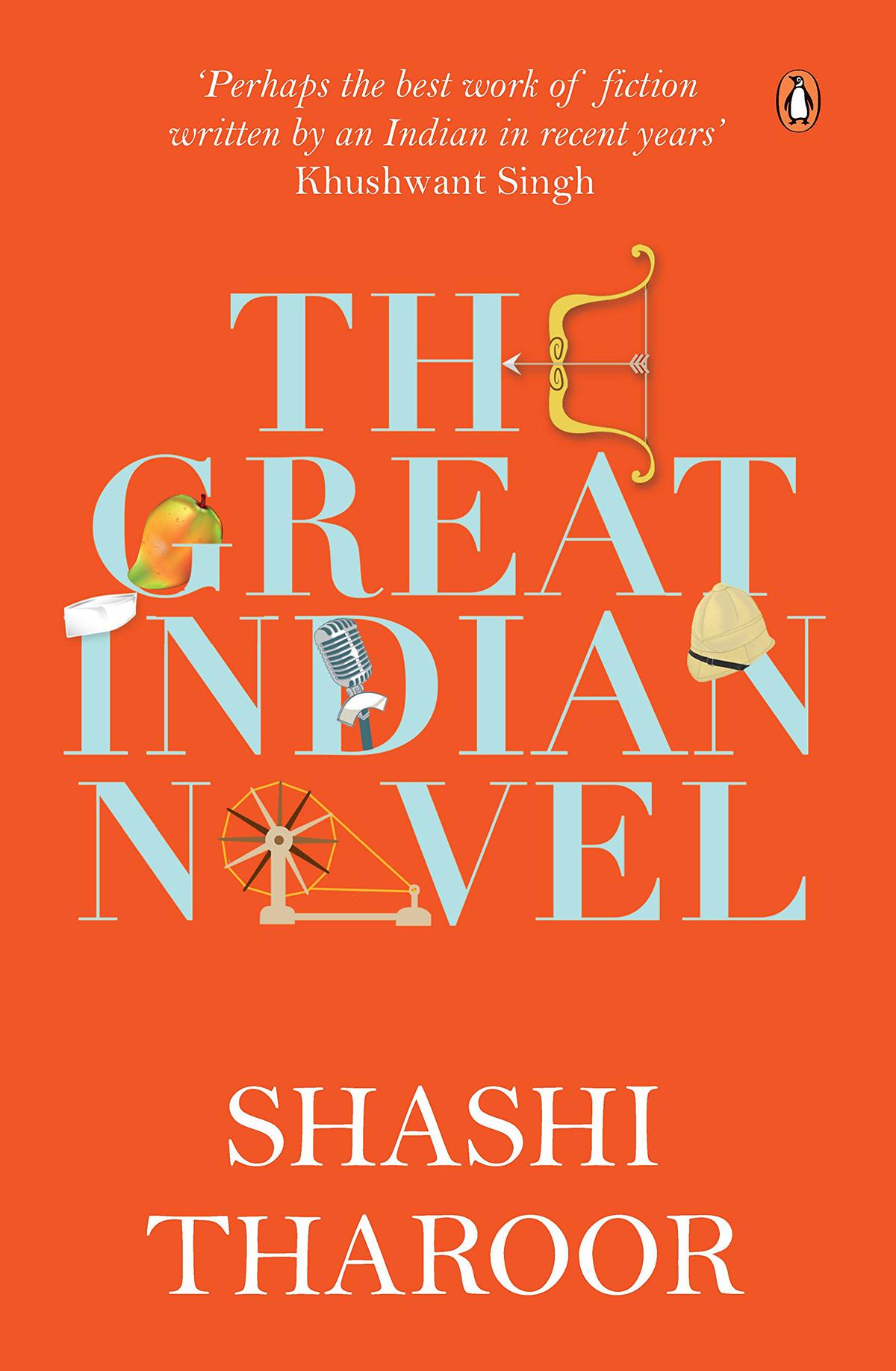
When I wrote my first novel, The Great Indian Novel, I remember I was a young U.N. official. I was also a young parent. And I would be doing things like writing on scraps of paper resting on the steering wheel while waiting in the parking lot for my wife to return from shopping for the children. You wrote whenever you could, if you cared enough, if it mattered enough to you, you squeezed the moments to start wherever you can.
Let me ask you an unrelated question. Because a key idea that is emerging from your writing is that just because you’re good at something, it doesn’t ensure you’re happy doing it. So, if success in a given field is not enough for happiness, what brings happiness?
Warikoo: I love this question because it will always have a different answer depending on who you are asking. And that is what I aim to teach people: that success is not relative, it is always an absolute. It is your definition that will make you successful because if you ape somebody else’s success, you will be living their life. For me, success is simple. It’s the ability to spend time on the things that I would love to do and not things that I have to do because the world tells me to. You would resonate with that a lot because your time would, I would imagine, go into a lot of things that the world requests you, or demands you to as against much you would want to.
Tharoor: That’s true. Don’t go into politics because a lot of your time is devoted to what other people’s priorities are and not what your preferences would be. Which is why I’ve always been astonished that most of the politicians I know have never retired. I will retire one day and I look forward to it because then I’ll be able to do the things I want to do, read the books I want to read that are piling up on my shelves. You know, watch the cricket matches I never had the time to watch instead of just following the scores on the internet. That may be why I probably have more failures and roadblocks to talk about even though I haven’t dedicated any books to them.
In your first book, you talked about your failure resume. Why did you place so much emphasis on failure?
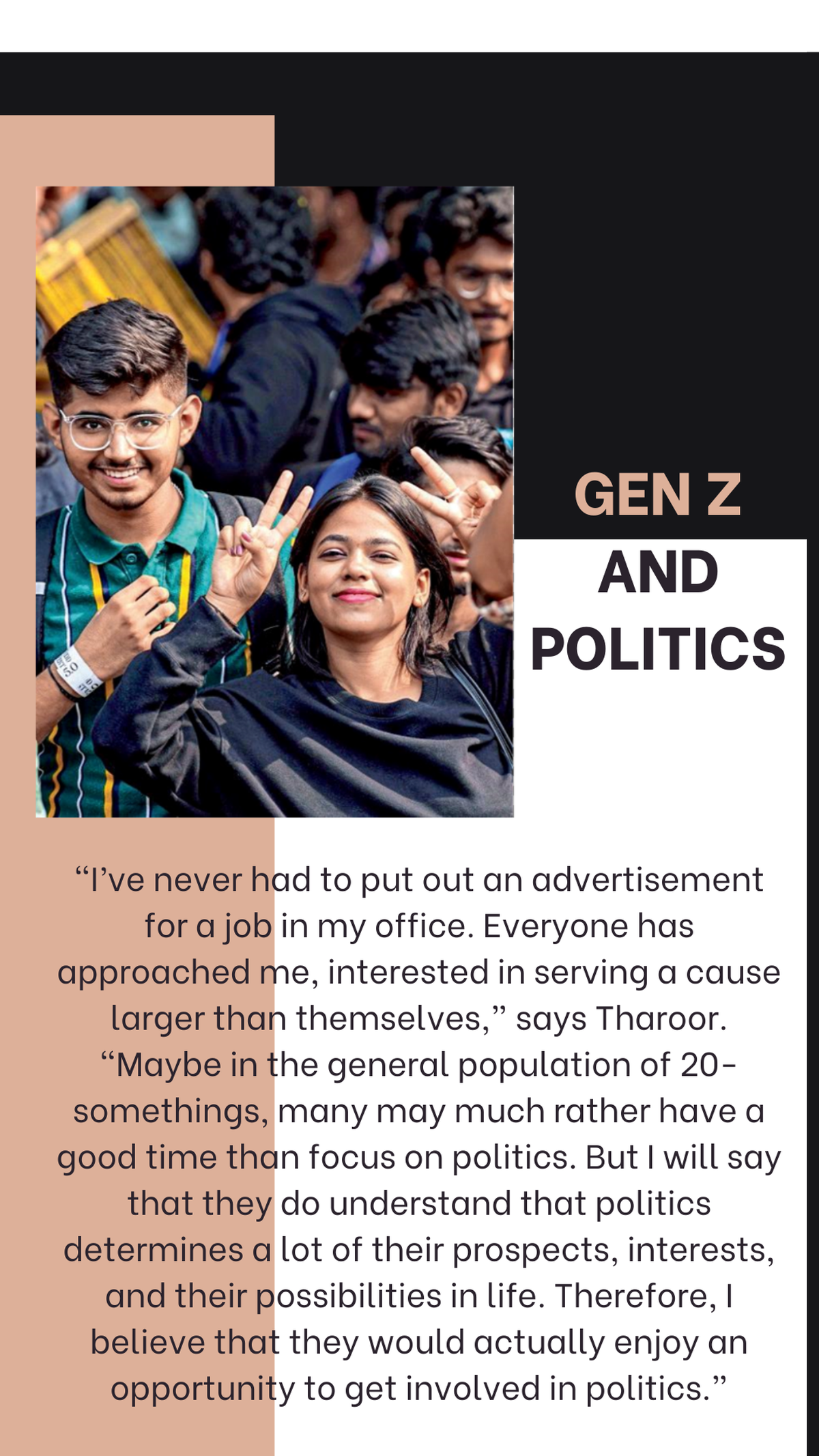
Warikoo: Everybody fails. So if anybody tells you failure is a stepping stone to success, that’s a lie because everybody fails, but not everyone succeeds. So, there’s something between the two that makes success happen. In my case, that answer is reflection. Until you don’t reflect upon your failure, you will never have the opportunity to convert it into success because you would just move on very quickly. And that speed or urgency to get past our failure is the reason why failure doesn’t help us succeed.
Tharoor: That’s beautifully said. What advice would you give people on where to direct their efforts?
Warikoo: I’d say it’s all about being patient and, and patience is such a virtue. You and I were born into an era and in a country where patience, with no choice of ours, was part of our life. We had to wait for everything. And today’s generation, for no fault of theirs, is getting everything at the speed of thought. So it tricks them into believing that most good things in life could happen overnight if they wished for it or worked harder. But that’s never going to be true. The most meaningful things in life — love, contentment, fulfillment, peace, happiness — all of them are going to take time and it will be years and years of you persisting at something that will ultimately get you to that point. And the only thing then that’s helped me and I’d certainly vouch for that for everybody else is get into the habit of ‘habits’, because habits dispense the least amount of energy for you to do something. What’s the one habit you were proud of in your life?
Tharoor: Oh, I used to be able to say daily exercise, but of late even that’s fallen away. So the problem with habits is sometimes sticking to them. But I do think that because the pressures on you change from time to time, and the demands made of you change, habits also sometimes suffer. Certainly, in politics, I lost the illusion that I’m totally in control of my day, my schedule, my hours because politics is a profession where a heck of a lot of what you do depends on the expectations and demands of others. And I think in some way that becomes a source of stress.
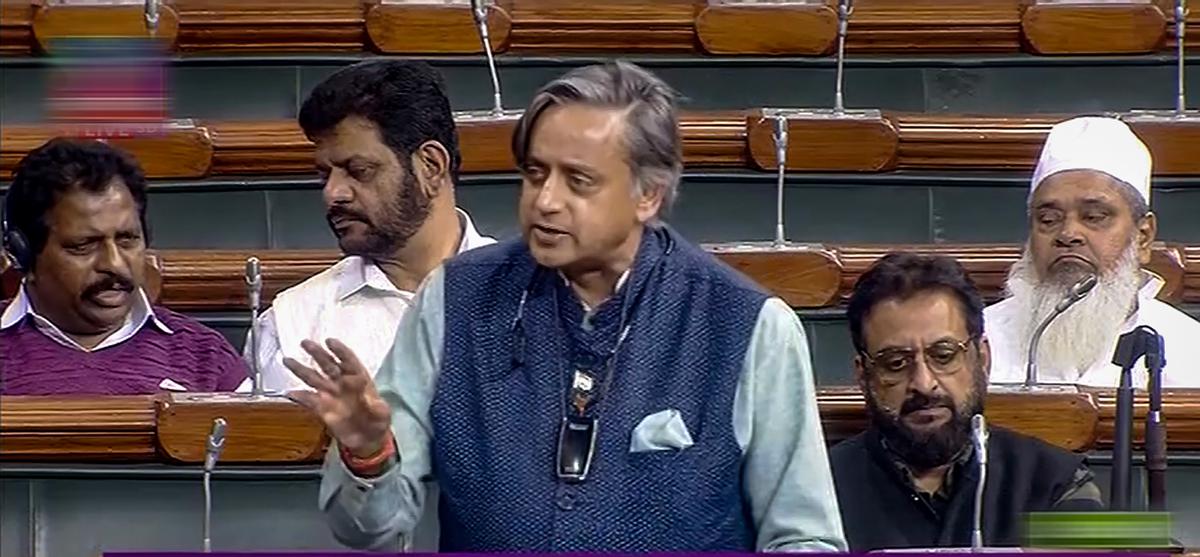
Shashi Tharoor speaks in the Lok Sabha during the Winter Session of Parliament
| Photo Credit:
PTI
Since I had a full 29-year-career in the U.N., one of the things I would have perhaps enjoyed looking forward to at the end of that is total control over my own life, but in fact I actually got into a profession that gives me even less control over my own life. But that’s enough about me. I want to get back to you. You obviously have a very good sense of your audience. And I would guess that a large portion of it, if not all of them, are Gen Z. How would you describe their generation?
Warikoo: There are a few things that stand out. One is the audacity of their ambition. They are not limited by the standard options that their parents have laid out for them — engineer, doctor, lawyer, CA. They recognise that there are so many opportunities. They also see themselves as a global workforce, a large part of which has to be credited to the pandemic. They’ve recognised that they are no longer limited by geographical constraints. I also see an appreciation for money. Not just to earn it, but to also use it wisely. They are saying, ‘How can I deploy money to create new revenue streams, to invest, to generate more money’, so that they get to a financial independence that liberates them from the chains of a salary or a corporate job.
But the last thing that characterises them is the abundance of choice. That’s wonderfully summarised in the four letter word that this generation lives with: FOMO. The fear of missing out is so intense, and a large part of their confusion and struggle is because of their inability to navigate the plethora of choices. So, if they see somebody who is helping them make those choices [giving them ‘prescriptions’ or an answer, as it were], that becomes the perfect fuel.
Tharoor: Yes, that’s true. Some of the topics in your book include things like dealing with office politics and other similarly difficult situations. How much of this was informed by your own experiences and did you take advice you give your reader when you are personally going through those trying times?
Warikoo: I’d say that in some way this book is about how I have navigated through my life. And I was very concerned about it because I know that my life has been mine to live and that certainly doesn’t warrant anybody else’s attention on it. Definitely not to assume that it is a prescription. So I start my book with saying that this might very well be the worst book that you’ll ever read because it is full of that one thing that I hate in life, and that’s prescriptions. To suggest that there is only a finite and a deterministic way of living life, and if you were to go left and right of that you are not going to live it the right way. Because that’s not true. Everybody’s life is going to be different. So my hope in this book is to give people some food for thought so that they can come up with their own answers to the same questions that I’ve asked. And in some way, have a boundary or a mental model to think around as against just picking this up as the only truth and then go about implementing it, as if that was the only thing that was right.
Ankur Warikoo says that his hope for ‘Get Epic Shit Done’ is that it will give people some food for thought so that they can come up with their own answers.
Tharoor: You divide the new book into four parts — managing your life, your career, other people, and yourself. Can the same approach work for all four, which is most important, and why?
Warikoo: The most important is the last section, managing yourself. I think everything stems from that. The conversations that you have with your own self defines literally everything that happens to you in your life. A large part of it is outside of your control. You don’t control what people think of you, what they tell you, what happens to you. What you essentially control is how you react to everything. And that’s always that conversation inside of you — it’s almost never about what somebody else has done but how you perceived it. And that’s why one of my favourite chapters in the book is ‘How to become your best friend?’ If you were to have the ability to think of yourself as your best friend, irrespective of the secrets you hold and the weaknesses that you have, you will find meaningful relationships with people, with circumstances, with events, with everything that were to unfold. And that will be, in my opinion, the most meaningful way of living.
Tharoor: That’s very good advice. And I must say you do talk about building good communication skills and how important it is to be a storytelling. And you are clearly very good at explaining yourself — you do so succinctly, you do it precisely. The big issue very often with good communicators, and certainly, you know, I’d like to think that sometimes I’ve been in that category, is that they say that it’s all in the delivery or the language. They use words like glib or slick, and they say ‘Oh, there’s really no substance there’. I disagree. I think the only reason that one can communicate effectively is if one has substance to communicate. Otherwise, you know, people will very quickly stop listening, in my opinion. But how do you feel about substance and delivery?
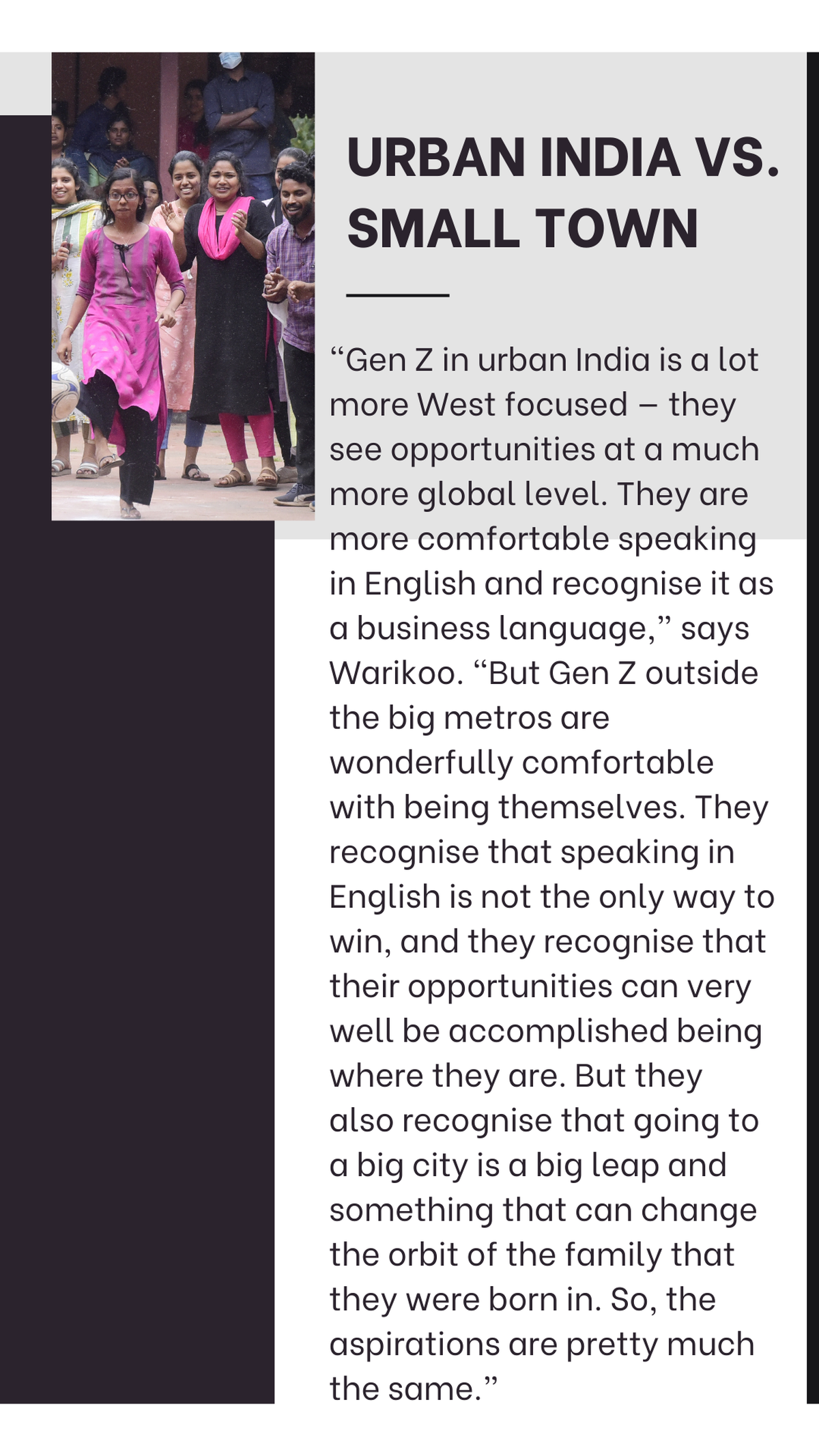
Warikoo: It’s a tough path to travel on, because particularly in our country — and I’m sure you will recognise this — a lot of people just equate communication with your grasp over the English language. [They’ll says something] like ‘Mr Tharoor will define the epitome of communication because of his control over his language’ and everyone will, of course, go gaga and you’ll be the subject of praise and, in some way, mockery. Hindi is my first language.
I am a Kashmiri, but I’m unfortunately not even trained very well to speak Kashmiri. I think in Hindi. And I have realised over time that there are two things that you require to be a communicator: you need to be a storyteller and you need to be an effective listener. And that’s devoid of language. Because storytelling is so ingrained in our culture — that was the way we got to know of the world. Our grandparents, our parents, they taught us about the world through stories. And we live in a country where stories are dime a dozen. So, you will never escape a way to communicate your idea through a story if you feel passionate about that.
And second, just listen because when you listen the world will actually tell you how they wish to be communicated with. It’s remarkable how many people have asked me, ‘Hey, where do you get your content ideas from?’ And I’m like if there’s anybody in India that says I’ve run out of content that person has stopped living in India. We are a country that is generating billions of ideas every single second because of what we are going through and what we are told. So, you are never going to run out of content if you are listening. Your Hindi or your colloquial language is just a form of delivery and you will always have an audience irrespective of which language you choose, as long as you weave stories inside it and you are actually listening more than speaking.
Warikoo sums up the year
Books: My absolute favourite, which I’ve read thrice already, is Atmamun by Dr Kapil Gupta. Another fantastic book, which really gripped me, was Buyer of Pain.
Defining moments: Hands down, it was seeing Do Epic Shit being sold at traffic signals across so many cities in India.
Writing books: It is always tricky to write books for people who don’t read them. So I have to be cognizant that the book cannot be a drain on their attention or excitement. That makes it very challenging and extremely exciting.
Causes: Education. That’s what I’m building. My next business, which has already started, is going to be in the field of education. Content is a great segue to it. I think of myself as a teacher. And the role I wish to play is to find a great companion for college kids in India, to make them life ready.
Ankur Warikoo’s new book, Get Epic Shit Done (published by Juggernaut) comes out December 18.


